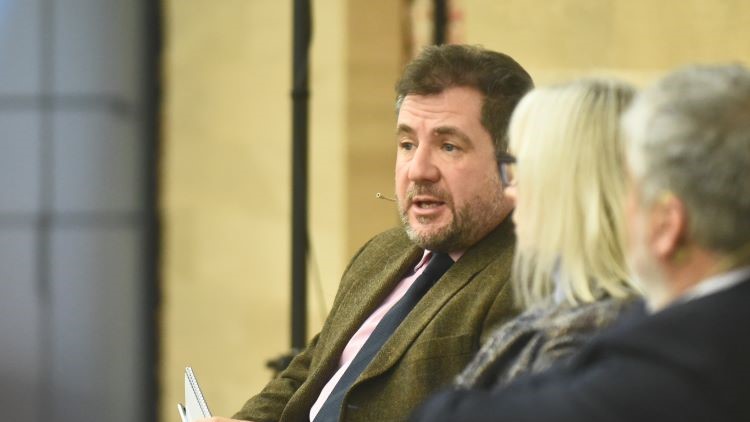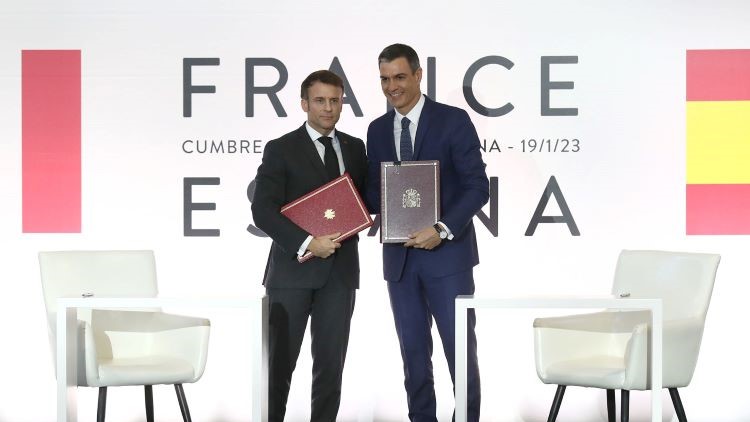Eduardo González
Spain will assume the Presidency of the Council of the EU with the “responsibility” of maintaining European unity at a “particularly delicate” geopolitical moment. To do so, it has a “very great asset” that many other countries on the continent lack: its “enormous consensus” on foreign policy, despite the “tension and polarization” that characterizes the political life of the country, especially in this election year.
This is one of the main conclusions of the report Spain in the World in 2023: Prospects and Challenges, prepared by the Elcano Royal Institute, which identifies the prospects of the current international scenario and analyzes the challenges of Spanish foreign action in the next twelve months.
The document, the eleventh edition of this annual report and which has been coordinated by Ignacio Molina and Jorge Tamames, points out that the Russian invasion of Ukraine has received “a firm response both from the European Union as a whole and from Spain in particular”, as well as “a combination of firmness and prudence on the part of the Biden Administration” which has allowed “the US international leadership, weakened after the withdrawal from Afghanistan, to be restored”. In this context, he continues, the NATO summit held in June 2022 in Madrid “confirmed that Atlanticism has been fully reinforced in the context of the war”.
The year 2023, the collective study continues, will be “fundamentally conditioned by the continuity of the war and will have as a great reference for Spain the exercise of the Presidency of the Council of the EU during the second half of the year”. Given that “it is unlikely that the conflict will end soon or that Moscow and Kyiv will manage to agree on a ceasefire to contain it”, and taking into account the “convulsive moments” that the European neighborhood is going through -both in the east and in the south- and “the entrenchment” of the China-US rivalry, “the EU will need to strengthen its ties with partners with whom it shares values, interests and a common agenda”, it continues.
For all these reasons, Elcano points out, the Spanish Presidency of the Council of the EU, which will take place from July onwards, acquires great importance due to its “large number of dossiers -technological, economic, energy and climate, security-“, and will be “key to determine the success of these efforts in Latin America”, in addition to the fact that it will “structure” the whole of the Spanish foreign action throughout the year.
Spain’s “very great asset”
Spain faces its Presidency of the EU with “the responsibility of maintaining European unity” at a “particularly delicate” moment, said Ignacio Molina during the presentation of the report, which took place yesterday at the headquarters of the Botín Foundation in Madrid and in which he was accompanied by José Juan Ruiz, president of the Elcano Royal Institute, and several authors of the report, the researchers Lara Lázaro, Mira Milosevich and the aforementioned Jorge Tamames.
Besides, he continued, the Spanish Presidency is an opportunity to “invest in the foreign chapter” and to allocate “more money for diplomatic action, for cooperation and for cultural action”. Therefore, he explained, Spain faces its European semester in “good conditions”, or, in any case, much better than those it had in 2010, when it held the Presidency “in a very complicated context due to the 2008 financial crisis, which turned into a public debt crisis in the middle of the Spanish Presidency”, and with a ruling party, the PSOE, which lost “ten points in voting intentions” at that time.
According to the researcher, the Presidency of the EU will be facilitated by the “very great asset” that Spain has “in comparison with other large and medium-sized EU states”: its “enormous consensus on how to connect Spain with Europe and the world”. “With the exception of the triangle formed by Sahara, Morocco and Algeria, never before has there been such a degree of alignment, and not only between the two main parties, but even in Spanish public opinion,” Molina assured, based on the polls carried out by the Elcano Royal Institute itself.
Despite the climate of “tension” that reigns in Spanish political life, characterized by “disagreement on almost everything”, on issues such as NATO, Ukraine and the EU “there is great social and political harmony”, he continued. Therefore, despite the fact that we are in an election year and that “we do not see the likelihood that the tension will diminish”, it is foreseeable that the polarization of public opinion will not be transferred to the foreign agenda and that Spain will maintain its traditional pro-European consensus and its broad support for Ukraine. “The great challenge is for that consensus in domestic policy to be maintained,” he warned. “We must be aware that we have that treasure, but that depends on the politicians, on whether they keep their vision or resort to short-sighted electioneering,” he added.







